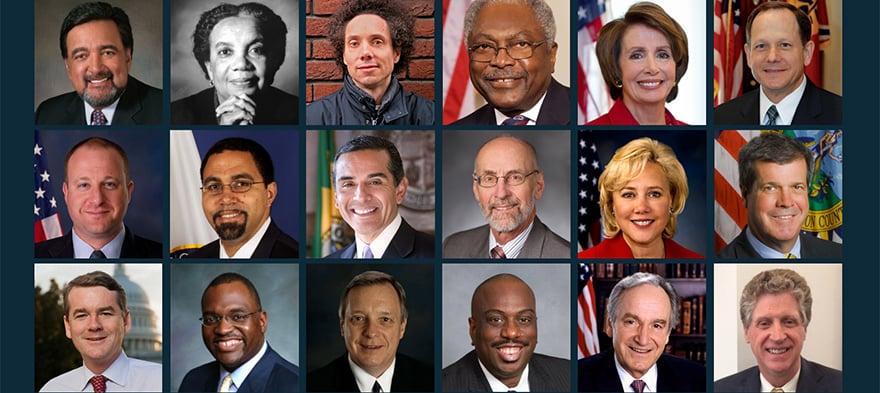
Oct 24, 2016 12:00:00 AM
Alternatives—realistic, aggressive, and viable competitors—to the present school system must be found. The development of such competitive public school systems will be attacked by the defenders of the present system as attempts to weaken the present system and thereby weaken, if not destroy, public education. This type of expected self-serving argument can be briefly and accurately disposed of by asserting and demonstrating that truly effective competition strengthens rather than weakens that which deserves to survive.Contemporary Democratic leaders that support public charter schools are not only carrying forth these core Democratic values, but are representing and respecting the voices of today’s Black, Hispanic, and low-income voters and parents. Survey results show that over 70 percent of each of these constituencies supports charter schools. In their communities, where public charter school enrollment is highest in both numbers and percentage of enrollment, elected leaders at the local and national level are overwhelmingly Democratic. Our report also debunks common charter school myths—such as pointing out accountability and transparency provisions that are in place for charter schools. And, we provide substantial information from respected, unbiased research that charter schools do indeed benefit students, particularly those that have experienced decades of neglect in traditional district schools. The results aren’t uniformly positive. But success is widespread. [pullquote]Where charter schools are succeeding, we should expand and replicate them.[/pullquote] What we’re seeing politically is exactly the opposite. When center-left officials and institutions ( such as the NAACP) support arbitrary caps, they are dismissing the voices of three million current charter school students and their parents, and the one million more who want to enroll their child in a charter school, but due to high demand, were only able to get on a waiting list (this includes: 8,640 parents in Washington, D.C., 44,000 in New York, 34,000 in Massachusetts, and a whopping 158,000 in California). They are discriminating against the charter schools, school leaders and teachers who have proven that they are delivering on the promise. In urban charter schools, students gain, on average, 40 additional days of learning in math and 28 additional days in reading compared to their district school peers as shown in a 2015 Stanford CREDO study. We hope our new report will help inform other progressives—both leaders making important policy decisions and the public at large—with a better understanding of who supports public charter schools and why. We believe we can all agree that access to a high-quality education should not exist only for those who can afford to purchase expensive homes, and that providing parents with choice and equal opportunity are core Democratic values. We ask that public policy be decided by evidence, and that schools be judged by quality, not by type.
Marianne Lombardo is a policy analyst at Democrats for Education Reform (DFER). Before joining DFER, Marianne was the Vice President for Research & Evaluation at the Ohio Alliance for Public Charter Schools, an Education Administrator for Ohio’s statewide Juvenile Correctional System, a Program Evaluator for a welfare-to-work project, and an Adjunct Instructor of Sociology. A graduate of New Futures High School in Albuquerque, New Mexico—one of the first alternative schools for teen parents in the nation—and a parent of a current public charter school student, Marianne knows firsthand how getting the right kind of education can transform a life. Marianne has a master’s degree in sociology from Ohio State University and recently completed the Strategic Data Project’s Leadership in Analytics at the Harvard Graduate School of Education. Although she finds it hard to get her mind off education reform, Marianne enjoys travel, reading and protesting injustice.
The story you tell yourself about your own math ability tends to become true. This isn’t some Oprah aphorism about attracting what you want from the universe. Well, I guess it kind of is, but...
If you have a child with disabilities, you’re not alone: According to the latest data, over 7 million American schoolchildren — 14% of all students ages 3-21 — are classified as eligible for special...
The fight for educational equity has never been just about schools. The real North Star for this work is providing opportunities for each child to thrive into adulthood. This means that our advocacy...
Your donations support the voices who challenge decision makers to provide the learning opportunities all children need to thrive.
Ed Post is the flagship website platform of brightbeam, a 501(c3) network of education activists and influencers demanding a better education and a brighter future for every child.
© 2020–2024 brightbeam. All rights reserved.
Leave a Comment